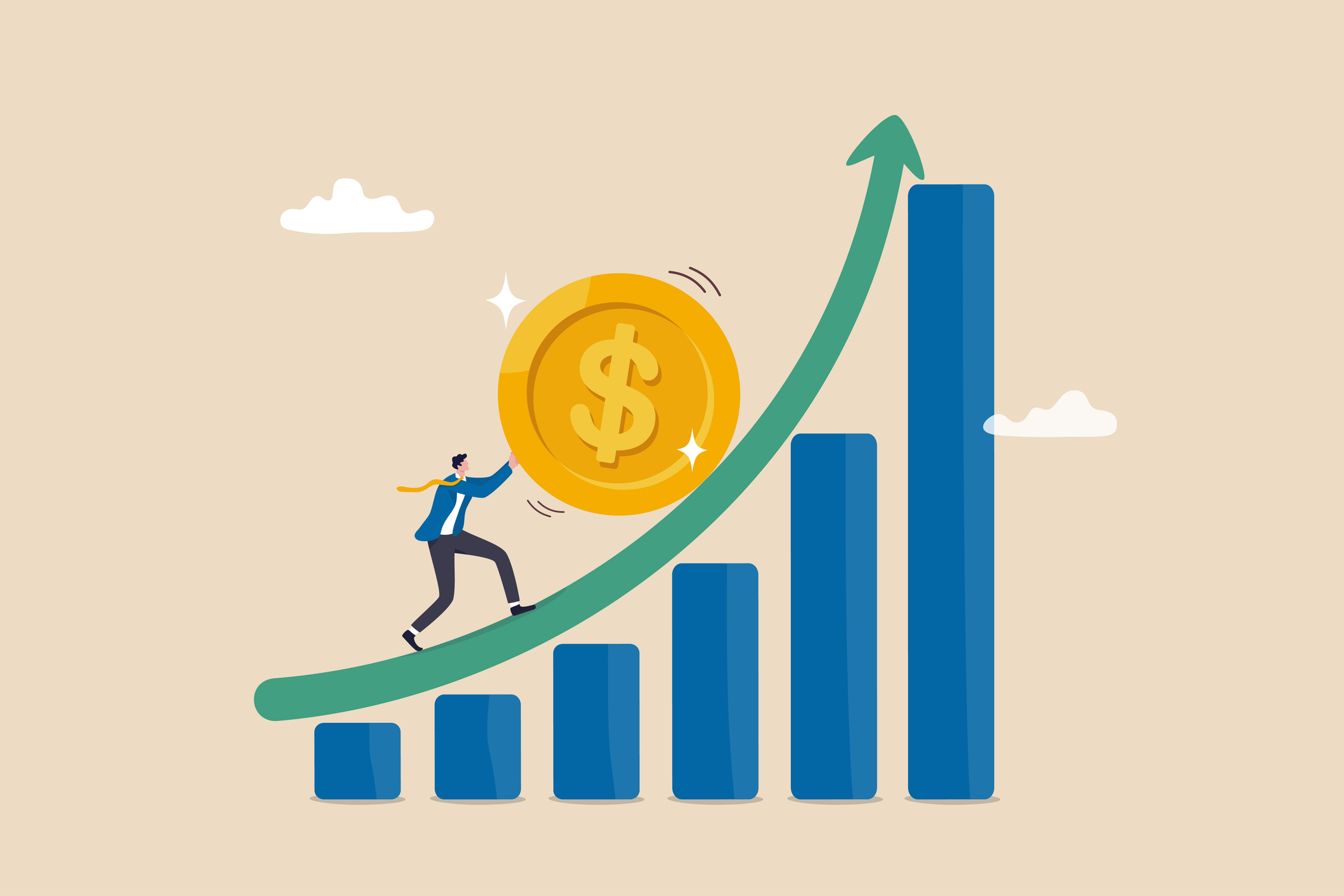CD vs High-Yield Savings: What Is the Difference?





Jamela Adam
Contributor
Jamela Adam is a personal finance writer covering topics such as mortgages, credit cards, student loans, debt management and more. Her work has been published in major publications such as Forbes Advisor, RateGenius, Business Insider, SuperMoney and Chime. Before going freelance, Jamela worked as a content marketing specialist and helped devise SEO content strategies for major brands in the fintech space.






Robert Thorpe
Senior Editor
Robert is a senior editor at Newsweek, specializing in a range of personal finance topics, including credit cards, loans and banking. Prior to Newsweek, he worked at Bankrate as the lead editor for small business loans and as a credit cards writer and editor. He has also written and edited for CreditCards.com, The Points Guy and The Motley Fool Ascent.
Updated August 1, 2024 at 4:01 pm

While savings accounts may offer greater flexibility when it comes to making withdrawals, CDs typically come with higher interest rates.
Certificates of Deposit (CDs) are a solid choice if you want guaranteed returns over a specific term and don’t mind committing your funds for a few months or years in exchange for higher annual percentage yields (APYs). On the other hand, a high-yield savings account may be a better fit if you want to earn a competitive interest rate while still being able to withdraw your savings occasionally.
So if you’re looking for a secure place to park your emergency funds, consider high-yield savings accounts. These accounts allow you to access your money when needed without incurring penalties. But if you have some cash you want to stash away to avoid impulsively spending it, CDs may make more sense
Newsweek Vault’s banking experts have done hundreds of hours of research to present you with all the latest information about your banking options. Whether you’re interested in opening a new checking account or savings account, our research spans all the top online banks, credit unions and brick-and-mortar branches.
We assessed the following five key factors to help you choose the best account for your personal finance needs.
- Associated fees
- ATM access
- Balance requirements
- Customer service
- Interest-earning potential
Certificates of Deposit (CDs)
A certificate of deposit (CD) is a type of time deposit financial product that holds your funds for a set period. In exchange, the financial institution pays you a fixed interest rate that’s typically higher than the rates offered on savings accounts. You can open CDs at most credit unions and banks.
Pros
- Higher interest rates compared to high-yield savings accounts or money market accounts
- Protected by insurance (FDIC insurance at banks and NCUA insurance at credit unions) up to the deposit insurance limit of $250,000
- Because CDs pay a guaranteed rate of return, they don’t fluctuate in value the way other investments do
Cons
- May get charged hefty penalties if you withdraw your CD funds before maturity
- CD rates may still not be high enough to keep pace with inflation
- Less liquidity compared to savings accounts and checking accounts
High-Yield Savings Account
A high-yield savings account (HYSA) rewards you with a higher interest rate than a traditional savings account, allowing your funds to grow faster. According to the FDIC, the interest rates on these accounts can often be ten times higher than the national average for regular savings accounts.
Pros
- Higher APYs than traditional checking or savings accounts—often as high as 5.00%
- Easy access to your funds without incurring hefty penalties
- Interest may compound daily, helping your funds grow faster than average accounts
Cons
- Variable APYs mean your yield may increase or decrease in the future depending on macroeconomic conditions
- Many banks and credit unions may still limit the monthly withdrawals you can make—typically six
- The best CD rates may be found at banks and credit unions that don’t have a physical location near you
Vault’s Viewpoint: High-Yield Savings Accounts vs. CDs
Are CDs or high-yield savings accounts better? The short answer is it depends.
High-yield savings accounts may be a better fit if you want to earn a decent return on your savings without committing to a fixed term. For example, if you’re saving for a down payment or building an emergency fund, putting your money in a HYSA allows you to grow your savings faster and access it whenever you need it.
On the other hand, CDs may be a better choice if you have a longer investment horizon and are willing to lock in your funds for a few months to a few years. And even though CDs come with the trade-off of limited liquidity and early withdrawal penalties, they may offer higher interest rates than high-yield savings accounts.
CDs Highlights
Earning Rewards With CDs
If you’re looking for a low-risk investment for your hard-earned cash, CDs offer many benefits that make them one of the top places to safely park your money. Plus you could take advantage of perks like:
- Loyalty rewards: Some online banks like Ally Bank offer a slight interest rate bump on top of their new CD rate.
- Bonus CD rates: To attract new deposits, some banks and credit unions may offer a higher-than-normal CD rate of return on a CD, also called a promotional rate or CD special.
- Bump-up CD rates: A bump-up CD is a certificate of deposit that allows you to increase the interest rate once before maturity.
Other Benefits of CDs
- Has fixed interest rates
- Offers higher returns compared to other savings vehicles
- Is subject to low market risk
- Deposits are FDIC-insured
- Various term lengths available
Are CDs Worth It?
CDs could be worth it if you’re seeking a low-risk investment with a competitive return since you’ll earn a much better interest rate than you would with a traditional savings account. But you’ll have to commit your funds for the entire length of your CD term to earn those benefits.
When you invest in a CD, you lock in the interest rate for the term, which means your APY won’t be adjusted if inflation happens. Consider creating a CD ladder to prevent your funds from losing value after accounting for inflation.
To build a CD ladder, you’ll open several CDs with varying term lengths instead of putting all your money in merely one account. This way, you can take advantage of the higher rates that long-term CDs offer while still benefiting from the higher liquidity of shorter-term CDs. Plus, when the shorter-term CDs mature, you can reinvest the money into new CDs with better APYs.
High-Yield Savings Accounts Highlights
Earning Rewards With a High-Yield Savings Account
High-yield savings accounts provide a safe place to park your cash and grow your funds. Opening a high-yield savings account may also come with the following rewards:
- Welcome bonus: Some high-yield savings accounts offer a bank account bonus if you deposit a certain amount within a certain number of days of opening the account.
- Referral rewards: For example, the Marcus by Goldman Sachs online high-yield savings account allows you and your friend to both earn an additional 1.00% for three months on your accounts if you refer them.
Other Benefits of a High-Yield Savings Account
- Offers easy access to your money
- Is FDIC-insured
- Offers higher interest rate than traditional savings accounts
- Ideal for parking emergency funds
- Interest rates are variable, which means they could go up
Is a High-Yield Savings Account Worth It?
High-yield savings accounts can be worth it if you’re solely looking for a place to keep money you’re not using in the short term but that you want fairly easy access to. They offer much more competitive APYs than traditional savings accounts—as much as ten times higher—allowing you to earn good returns with minimal risks.
But if your goal is to build long-term wealth, parking all of your cash in a high-yield savings account is not the wisest idea. The rate of inflation can be higher than the yield you earn over time in a HYSA, which means the value of your funds could be shrinking.
Putting your money in a HYSA can be worth it in the short term, but you may want to consider other investment strategies to grow your wealth in the long term, such as investing in real estate.
Who Are CDs Best For?
CDs are best for low-risk savers who are willing to lock away their funds for a set period in exchange for earning more interest than other types of savings accounts.
CDs are relatively safe, offer stellar APYs and come in various term lengths. Depending on your mid- or long-term savings goal, you can choose a CD term that makes the most financial sense for your situation.
But if you want to access your funds regularly, CDs may not be the best option: You could incur hefty penalties for withdrawing your initial deposit before your CD’s maturity date.
Who Is a High-Yield Savings Account Best For?
A high-yield savings account is best for someone looking to build an emergency fund or achieve a short-term savings goal, like an upcoming home purchase. It not only keeps your money safe and accessible but also offers a higher-than-average interest rate.
While HYSAs offer APYs that are multiple times higher than the national savings rate, you may want to consider other options, such as investing in the stock market, to earn even higher returns and diversify your investments. Investing has the potential to generate much higher returns than savings accounts, though it also comes with higher risks.
CD vs. High-Yield Savings Account Differences
Still not sure which account is best for your financial situation and money goals? Consider the differences between CDs and high-yield savings accounts to make an informed decision.
| CDs | High-Yield Savings Accounts | |
| Interest rates | Fixed interest rate | Variable interest rates |
| Monthly fees | Most don’t come with monthly fees. | May charge monthly maintenance fees as high as $25 a month. |
| Withdrawal limits | You can only withdraw your funds at maturity. Otherwise, you must pay an early withdrawal fee. | Typically set at six penalty-free withdrawals per month at most banks and credit unions. |
| Adding funds | Typically not allowed to contribute additional funds after the initial deposit. | No limits or strict rules about how much or how often you can deposit money. |
| Ideal use cases | Mid- or long-term savings goals | Emergency funds or short-term savings goals |
Who Should Consider An Alternative?
You may want to consider other ways to put your money to use if any of these scenarios resonate with you:
You Have High-Interest Debt
According to Federal Reserve data, the average credit card interest rate for accounts that assessed interest was 22.75% in November 2023—over four times what you earn through a CD or HYSA. So you’ll save far more money paying off credit card debt than you could earn through CDs or HYSAs.
You Want to Grow Your Nest Egg Aggressively
If your goal is to grow your wealth aggressively, parking all your funds in a CD or high-yield savings account may not be the most effective way to achieve significant returns. Instead, you may want to focus on investments with higher potential yields, such as:
Remember, everyone’s financial situation is different, and what works for one person may not work for another. Speak with a certified financial planner to help you map out the best course of action to achieve your financial goals.
More From the Vault: Guide to High-Yield Savings Accounts
Editorial Note: Opinions expressed here are author’s alone, not those of any bank, credit card issuer, hotel, airline or other entity. This content has not been reviewed, approved or otherwise endorsed by any of the entities included within the post. We may earn a commission from partner links on Newsweek, but commissions do not affect our editors’ opinions or evaluations.




Jamela Adam
Contributor
Jamela Adam is a personal finance writer covering topics such as mortgages, credit cards, student loans, debt management and more. Her work has been published in major publications such as Forbes Advisor, RateGenius, Business Insider, SuperMoney and Chime. Before going freelance, Jamela worked as a content marketing specialist and helped devise SEO content strategies for major brands in the fintech space.











